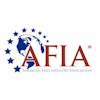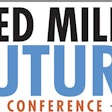Argentina Seeks Expedited Review of Biodiesel Tariffs
- Argentina has requested that the United States accelerate its review of anti-dumping duties it currently slaps on biodiesel imports from the South American nation, one of the world's top exporters of the fuel.
- Argentina had requested a review last November of U.S. tariffs imposed at the end of 2017 due to allegations of subsidies and dumping, which in effect shut off access for Argentine exporters to the U.S. market.
- Argentine exports of biodiesel to the United States before anti-dumping measures totaled approximately $1.5 billion per year.
- Argentina's biodiesel sector in recent years has been hit by trade sanctions for allegations of unfair competition. The EU has also placed trades restrictions on Argentina biodiesel exports.
- What It Means For The US Farmer: At FBN we believe that if the U.S. and Argentina were to resolve their differences, increased imports of biodiesel could be a negative for the U.S. soy producer. We think that increased imports of the fuel could reduce domestic demand for soybean oil could soften crush margins and reduce demand for soybeans.
Europe/Russian News
- Russian agro-consultant IKAR raises their 2019/20 wheat crop by 400,000 MT to 81 MMT. This forecast is above the USDA’s 77 MMT and below SovEcon’s 83 MMT prediction. In 2018/19 Russia produced a 73 MMT wheat crop.
- IKAR’s Russian wheat export estimate is 37.8 MMT, +.8 MMT YoY, and +1.8 MMT above the USDA’s estimate.
- On Monday, The European Union's crop monitoring service, MARS, raised its soft wheat yield forecast for the EU to 6.05 tonnes per hectare (t/ha) from 6.01 t/ha last month.
- MARS raised EU corn yields to 7.92 t/ha from 7.73 t/ha last month and barley yields are forecasted at 4.96 t/ha from 4.95 t/ha.
- MARS cut it’s EU rapeseed yield, to 3.13 t/ha from 3.19 t/ha last month.
- What It Means For The US Farmer: The improvement in Russian and EU wheat crops and export estimates is not a surprise as the USDA’s numbers lag behind several reputable Russian agro-consultant firms. At FBN we believe that the improvement in the Russian and EU wheat and feed grain crops will present a negative for U.S. wheat exports. As U.S. listed wheat futures continue to appreciate, we believe that our recommendation to hedge another 25% of SRW, HRW and HRS crops is a prudent strategy to protect against what we believe are bearish fundamentals.
The risk of trading futures, hedging, and speculating can be substantial. FBN BR LLC (NFA ID: 0508695)










